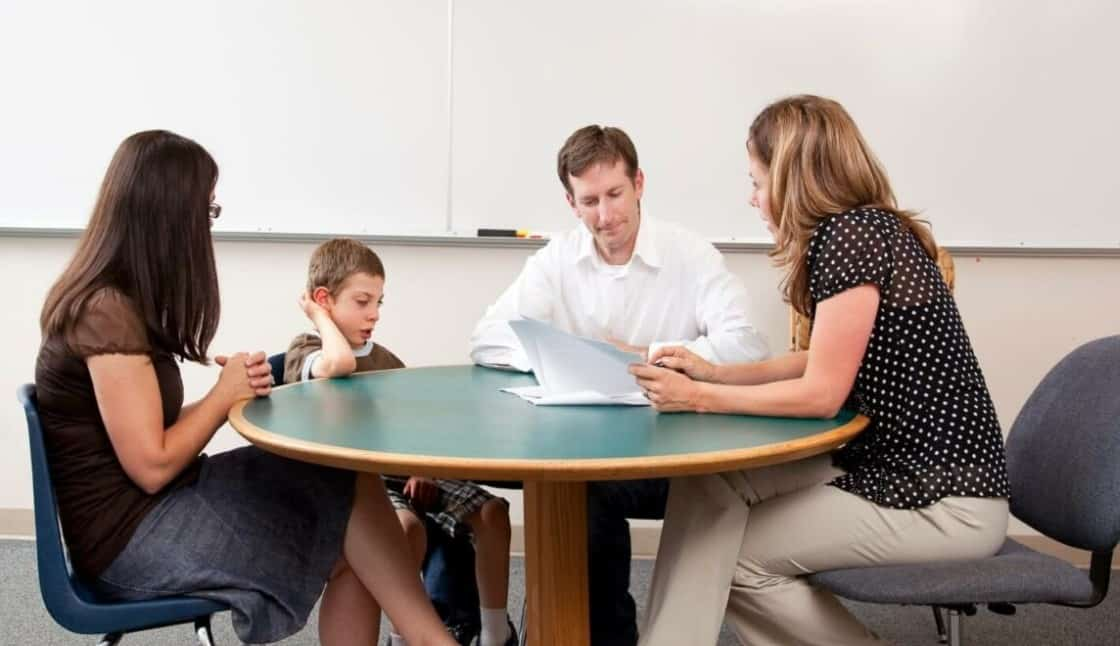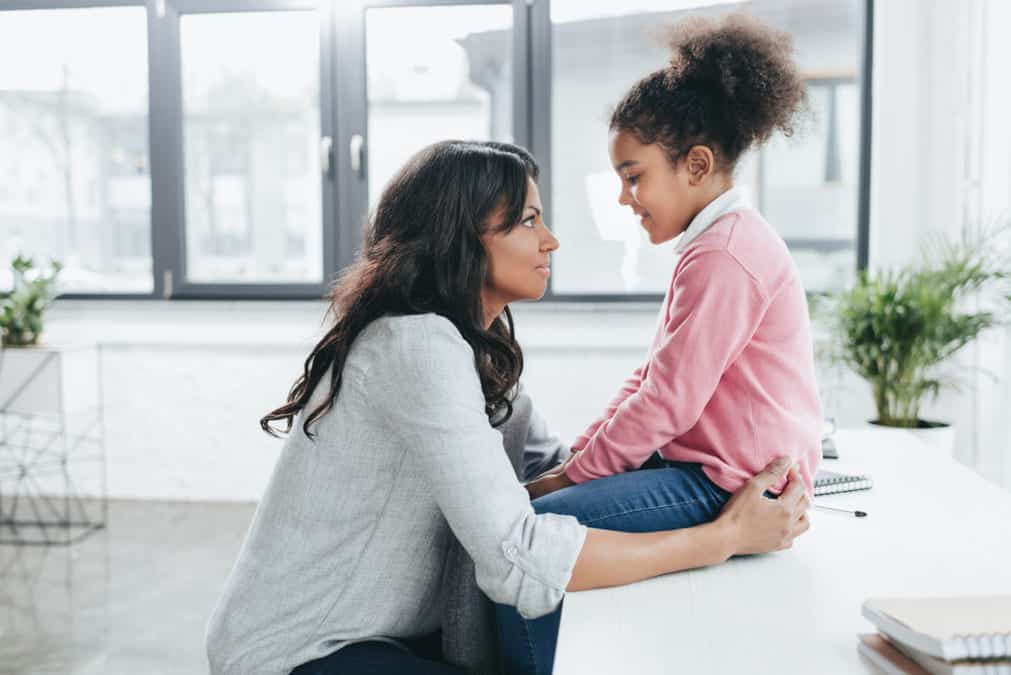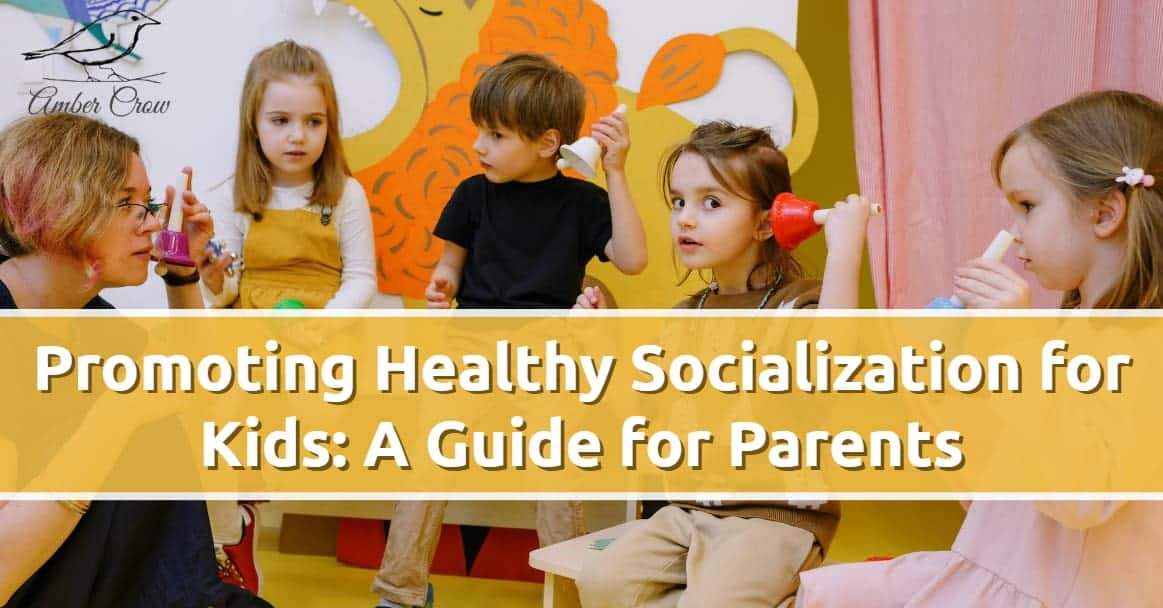Parent-teacher conferences are essential opportunities to understand your child’s academic progress, strengths, and areas for improvement. But how can you make the most of these meetings? This article will guide you through the process, from preparation to follow-up, ensuring a productive and positive experience.
Preparing for the Conference

Understanding Your Child’s Needs
Assess their academic performance, identify areas where support might be needed, and recognize their interests and strengths.
Before the conference, it’s essential to have a clear understanding of your child’s academic and personal needs. Start by assessing your child’s academic performance, reviewing their grades, test scores, and any feedback from the teacher. Look for trends, such as consistent struggles in a particular subject or noticeable improvements.
Next, identify where your child might need extra help. Are they struggling with reading comprehension? Do they need more challenges in math? Understanding these areas allows you to discuss specific support strategies with the teacher. Finally, recognize what excites and motivates your child. Understanding their interests and strengths, whether in science, art, or sports, can provide insights into how to engage them in learning.
Gathering Relevant Information
Compile essential documents and information, such as:
- Report cards and test scores
- Your child’s homework or projects
- Notes on behavior or specific concerns
Having the right information at your fingertips can make the conference more focused and efficient. Bring copies of recent report cards and standardized test scores, as these documents provide a snapshot of your child’s academic performance.
If some specific assignments or projects have raised questions or concerns, bring them along to serve as concrete examples to discuss with the teacher. Additionally, if you have observed behaviors at home that concern you, or if your child has expressed feelings about school that you want to explore, make notes to ensure you don’t forget to discuss them during the conference.
Setting Goals
Consider what you hope to achieve, including:
- Understanding the teacher’s expectations
- Identifying ways to support your child at home
- Clarifying any concerns or misunderstandings
Setting clear goals for the conference ensures that you cover the most important topics and leave with a clear understanding and plan. Start by understanding the teacher’s expectations, including what they expect from your child and the standards for their grade level.
This understanding can help you support your child’s learning at home.
Next, discuss with the teacher specific strategies, resources, or activities that can reinforce learning at home. Whether it’s reading together, practicing math problems, or exploring science through experiments, knowing how to align home support with classroom learning is vital. Finally, if some issues or concerns have arisen, address them directly with the teacher during the conference. Whether it’s a misunderstanding about a grade, confusion about an assignment, or concerns about a social issue, addressing them promotes clarity and collaboration.
During the Conference

Building Rapport with the Teacher
Creating a positive atmosphere during the conference is essential for open and productive communication. Start by expressing genuine appreciation for the teacher’s efforts. Acknowledging the hard work and dedication they put into their role can set a positive tone for the meeting. Maintain an open and respectful attitude throughout the conversation.
Remember, you and the teacher are on the same team, working towards the best interests of your child. Avoid becoming confrontational or defensive. Instead, focus on collaboration, recognizing that both you and the teacher bring valuable insights and perspectives to the table. By building rapport and fostering a spirit of cooperation, you pave the way for a more fruitful and enjoyable conference.
Asking the Right Questions
The questions you ask during the conference can shape the direction and outcomes of the meeting. Start by inquiring about your child’s performance in specific subjects. This question can lead to a detailed discussion about strengths, weaknesses, and strategies for improvement. Next, ask what you can do at home to support learning. The teacher may have specific recommendations for activities, resources, or routines that align with classroom learning.
Don’t hesitate to ask about social or behavioral concerns as well. Understanding how your child interacts with peers and behaves in the classroom can provide valuable insights into their overall well-being and development. By asking thoughtful and relevant questions, you promote a deeper understanding of your child’s experience at school and how you can support them at home.
Discussing Concerns
If you have specific concerns or issues you want to address, approach them openly and constructively. Start by sharing your observations and feelings without placing blame or becoming overly emotional. For example, if you’re concerned about a low grade on a recent assignment, explain what you’ve noticed and ask for the teacher’s perspective.
Listen carefully to what the teacher has to say, recognizing that they may have information or insights that you don’t. Seek solutions collaboratively, focusing on what can be done to support your child rather than dwelling on past mistakes or misunderstandings.
By addressing concerns in this manner, you create an opportunity for problem-solving and partnership rather than conflict and tension.
After the Conference

Reflecting on the Meeting
Once the parent-teacher conference has concluded, it’s essential to take time to reflect on the discussion. Start by summarizing the key points and agreements made during the meeting. What were the main takeaways? What specific strategies or actions were discussed? Writing these down can help solidify your understanding and provide a reference for future actions.
Next, consider the teacher’s insights and suggestions. Teachers often have a unique perspective on your child’s abilities, behavior, and needs. Reflect on what the teacher shared and how it aligns with or differs from your own observations. This reflection can provide valuable insights into your child’s experience at school and help you see them in a new light.
Finally, evaluate your own feelings and reactions to the conference. Were there moments of agreement or tension? Did you feel heard and understood? Understanding your emotional response can provide insights into what went well and what might need to be addressed in future communications.
Creating an Action Plan
After reflecting on the meeting, it’s time to develop a plan to support your child’s growth. Start by outlining specific steps and responsibilities.
What will you do at home to support learning? What has the teacher committed to doing? Clearly defining these roles and responsibilities ensures that everyone is on the same page and working towards the same goals.
Next, set realistic and achievable goals for your child. These goals should align with the insights and agreements from the conference and be tailored to your child’s unique needs and abilities. Setting clear, attainable goals provides direction and motivation for both you and your child.
Finally, include your child in the planning process. Share with them the outcomes of the conference and the plans for moving forward. Encourage their input and make them an active participant in their own learning journey. This inclusion fosters ownership, responsibility, and motivation.
Following Up
Maintaining communication with the teacher after the conference is crucial for ongoing collaboration and success. Start by sending a thank-you note or email, expressing appreciation for the teacher’s time and insights. This simple gesture fosters goodwill and demonstrates your commitment to working together.
If needed, schedule follow-up meetings to continue the conversation or address new developments. Regular check-ins can keep the lines of communication open and ensure that everyone stays aligned and informed.
Finally, keep the teacher informed of progress or changes at home. If you’ve implemented new strategies or noticed changes in your child’s behavior or performance, share these updates with the teacher. This ongoing communication creates a dynamic partnership that adapts and responds to your child’s evolving needs.
The Role of the Child

Involving Your Child
The parent-teacher conference is not just about the adults; it’s ultimately focused on the child’s growth and development. Therefore, involving your child in the process is essential. Start by discussing the conference and its purpose with them.
Explain why you’re meeting with the teacher and what you hope to achieve. This conversation demystifies the process and helps your child understand that it’s a collaborative effort to support their success.
Next, encourage your child to share their feelings and goals. Ask them how they feel about school, what they enjoy, what challenges them, and what they hope to achieve. Their insights can provide valuable perspectives that inform your conversation with the teacher. It also empowers your child, making them an active participant in their own education.
Finally, keep your child informed of plans and expectations after the conference. Share with them the key takeaways, agreements, and action plans. This transparency helps your child understand what’s expected of them and what support they can expect from you and their teacher.
Communicating with Your Child
Maintaining open communication with your child about their education is an ongoing process that extends beyond the conference. Start by sharing the outcomes of the conference with them. What did you and the teacher discuss?
What plans were made? Sharing this information helps your child see the connection between home and school and reinforces the collaborative effort to support their growth.
Next, encourage ongoing dialogue about school. Regularly ask about their day, their assignments, their friends, and their feelings about school. This ongoing conversation keeps you informed and engaged with their daily experiences and allows you to address concerns or celebrate successes as they arise.
Finally, make a point to celebrate achievements and address challenges together. Whether it’s a great grade on a test, a successful project, or overcoming a struggle with a particular subject, recognizing and celebrating these moments fosters motivation and self-esteem. When challenges arise, address them constructively, focusing on solutions and support rather than blame or criticism.
While parent-teacher conferences are invaluable for understanding your child’s progress in the academic setting, it’s equally important to recognize their unique abilities and talents outside of the classroom. For a comprehensive guide on how to identify and nurture your child’s individual talents, consider reading our article on “Recognizing and Nurturing Your Child’s Unique Talents.
Technology and Conferences

Virtual Conferences
Virtual parent-teacher conferences are becoming more common. Embracing technology for these meetings can provide flexibility and convenience, but it also requires careful preparation.
- Test Your Equipment in Advance: Before the virtual conference, test your computer, camera, microphone, and internet connection. Ensure that everything is working properly to avoid technical difficulties during the meeting. Familiarize yourself with the platform being used, whether it’s Zoom, Microsoft Teams, or another video conferencing tool. Knowing how to mute/unmute, share your screen, and use other features can make the conference run more smoothly.
- Ensure a Quiet and Professional Setting: Choose a location for the virtual conference that is free from distractions and background noise. A quiet room with good lighting allows both you and the teacher to focus on the conversation. Consider what will be visible in the background of your video and ensure that it’s appropriate and professional.
- Prepare Materials Digitally if Possible: If you plan to discuss specific documents, such as report cards or assignments, have them ready in a digital format. Sharing your screen to show these documents can make the conversation more efficient and focused.
Virtual conferences offer unique opportunities and challenges. By preparing thoughtfully, you can create an experience that is as productive and engaging as an in-person meeting.
Utilizing Technology for Follow-Up
Technology also plays a vital role in the follow-up to the parent-teacher conference. Leveraging digital tools can enhance communication and collaboration between home and school.
- Use Email or School Platforms for Communication: Many schools have dedicated platforms or apps that facilitate communication between teachers and parents. Utilize these tools to send messages, ask questions, or share updates. Email is also a valuable tool for maintaining ongoing communication with the teacher.
- Share Digital Resources or Tools: If you and the teacher have discussed specific resources, strategies, or tools to support your child’s learning, consider sharing them digitally. Whether it’s a link to an educational website, a downloadable app, or a shared document with a learning plan, digital sharing makes access and collaboration easier.
- Explore Online Parent Communities for Support: Many schools and communities have online forums, social media groups, or websites where parents can connect, share experiences, and seek support. Engaging with these communities can provide additional insights, resources, and encouragement as you work to support your child’s education.
Strategies for Ongoing Collaboration Between Parents and Teachers
Parent-teacher collaboration shouldn’t be confined to scheduled conferences. Building a strong, ongoing relationship between parents and teachers can significantly enhance a child’s educational experience. Here are some strategies to foster this collaboration:
Regular Communication
Consider setting up regular check-ins with the teacher, whether through emails, phone calls, or brief face-to-face meetings. These regular touchpoints keep both parties informed and engaged. Many schools offer digital platforms that allow parents and teachers to communicate easily. Utilize these tools to stay connected and receive updates on your child’s progress.
Collaborative Planning
| Goal | Objective | Parent’s Role | Teacher’s Role | Timeline |
|---|---|---|---|---|
| Improve Math Skills | Master Multiplication | Practice at Home | Provide Materials | 1 Month |
| Enhance Reading Ability | Read 5 New Books | Encourage Reading | Suggest Books | 2 Months |
Work with the teacher to set shared goals for your child’s learning. These goals should be revisited and adjusted as needed throughout the school year. If there are class projects or events, volunteer your time or expertise. Your involvement can provide additional support and show your child that you value their education.
Supporting Classroom Learning at Home
Ask the teacher for specific strategies they are using in the classroom and mirror those strategies at home. This alignment helps reinforce learning and provides a consistent experience for the child.
Teachers often have access to educational resources that can be used at home. Collaborate with them to identify books, websites, or activities that support classroom learning.
Building a Community
Join or participate in parent-teacher groups or associations at your child’s school. These groups often facilitate collaboration, support, and community building. Attend school events designed to engage families. These events provide opportunities to connect with teachers, other parents, and the broader school community.
Recognizing and Respecting Boundaries
While collaboration is essential, it’s also important to recognize and respect the teacher’s time. Establish clear communication channels and expectations to ensure that collaboration is productive without becoming burdensome. Maintain confidentiality and trust by respecting the privacy of information shared between you and the teacher.
Wrapping Up Making the Most of Parent-Teacher Conferences
Making the most of parent-teacher conferences is a multifaceted process that involves preparation, engagement, reflection, collaboration, and the thoughtful use of technology.
By understanding your child’s needs, building rapport with the teacher, creating actionable plans, involving your child, and leveraging digital tools, you can foster a positive and productive relationship that supports your child’s academic success. It’s a partnership that requires effort, empathy, and communication, but the rewards in terms of your child’s growth and your connection with their educational journey are immeasurable.
The parent-teacher conference is more than a meeting; it’s an opportunity to collaborate, connect, and contribute to your child’s bright future.
As you navigate parent-teacher conferences and strive to understand your child’s academic progress, it’s crucial not to overlook the importance of their social development. Our article on “Promoting Healthy Socialization for Kids: A Guide for Parents” provides detailed strategies to foster strong social skills, which are essential for balanced growth.”

